Refine listing
Actions for selected content:
2326 results in Cambridge Elements
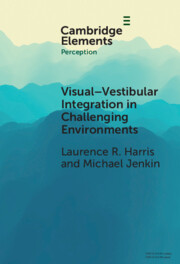
Visual-vestibular Integration in Challenging Environments
-
- Published online:
- 09 December 2024
- Print publication:
- 30 January 2025
-
- Element
- Export citation
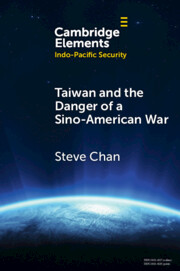
Taiwan and the Danger of a Sino-American War
-
- Published online:
- 09 December 2024
- Print publication:
- 02 January 2025
-
- Element
- Export citation
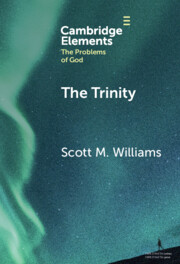
The Trinity
-
- Published online:
- 09 December 2024
- Print publication:
- 16 January 2025
-
- Element
- Export citation
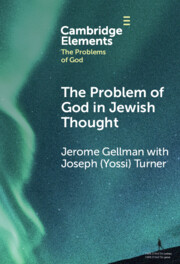
The Problem of God in Jewish Thought
-
- Published online:
- 09 December 2024
- Print publication:
- 09 January 2025
-
- Element
- Export citation
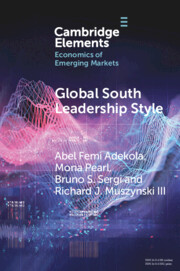
Global South Leadership Style
- Strategies for Navigating Emerging Economies
-
- Published online:
- 06 December 2024
- Print publication:
- 09 January 2025
-
- Element
- Export citation
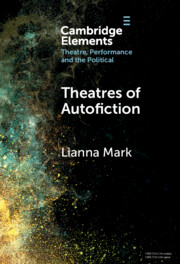
Theatres of Autofiction
-
- Published online:
- 06 December 2024
- Print publication:
- 30 January 2025
-
- Element
- Export citation
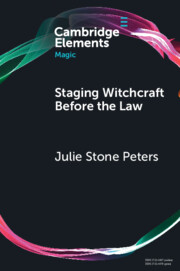
Staging Witchcraft Before the Law
- Skepticism, Performance as Proof, and Law as Magic in Early Modern Witch Trials
-
- Published online:
- 06 December 2024
- Print publication:
- 09 January 2025
-
- Element
-
- You have access
- Open access
- HTML
- Export citation
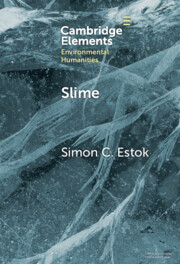
Slime
- An Elemental Imaginary
-
- Published online:
- 06 December 2024
- Print publication:
- 09 January 2025
-
- Element
- Export citation
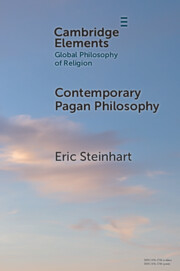
Contemporary Pagan Philosophy
-
- Published online:
- 06 December 2024
- Print publication:
- 02 January 2025
-
- Element
- Export citation
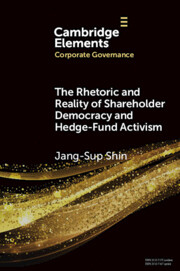
The Rhetoric and Reality of Shareholder Democracy and Hedge-Fund Activism
-
- Published online:
- 05 December 2024
- Print publication:
- 09 January 2025
-
- Element
- Export citation
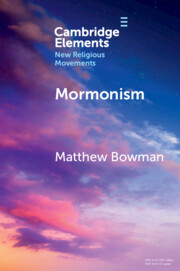
Mormonism
-
- Published online:
- 05 December 2024
- Print publication:
- 16 January 2025
-
- Element
- Export citation
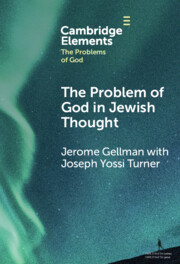
God and the Problem of Epistemic Defeaters
-
- Published online:
- 05 December 2024
- Print publication:
- 02 January 2025
-
- Element
- Export citation
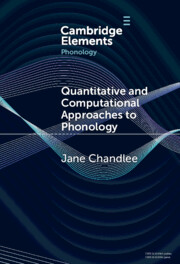
Quantitative and Computational Approaches to Phonology
-
- Published online:
- 05 December 2024
- Print publication:
- 16 January 2025
-
- Element
- Export citation
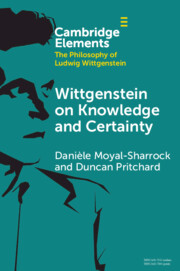
Wittgenstein on Knowledge and Certainty
-
- Published online:
- 05 December 2024
- Print publication:
- 09 January 2025
-
- Element
- Export citation
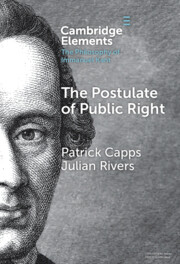
The Postulate of Public Right
-
- Published online:
- 05 December 2024
- Print publication:
- 09 January 2025
-
- Element
- Export citation
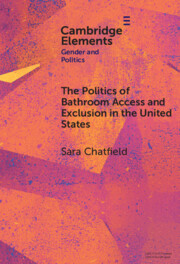
The Politics of Bathroom Access and Exclusion in the United States
-
- Published online:
- 05 December 2024
- Print publication:
- 05 December 2024
-
- Element
- Export citation
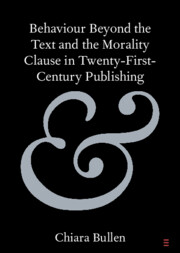
Behaviour Beyond the Text and the Morality Clause in Twenty-First-Century Publishing
-
- Published online:
- 05 December 2024
- Print publication:
- 05 December 2024
-
- Element
- Export citation
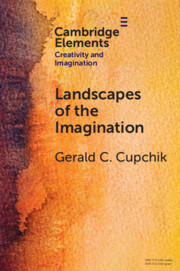
Landscapes of the Imagination
-
- Published online:
- 05 December 2024
- Print publication:
- 30 January 2025
-
- Element
- Export citation
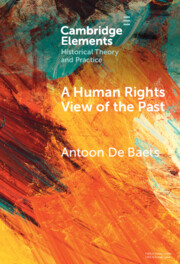
A Human Rights View of the Past
-
- Published online:
- 05 December 2024
- Print publication:
- 16 January 2025
-
- Element
- Export citation
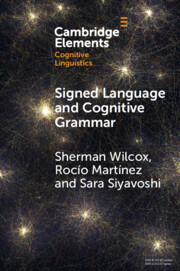
Signed Language and Cognitive Grammar
-
- Published online:
- 05 December 2024
- Print publication:
- 09 January 2025
-
- Element
- Export citation
